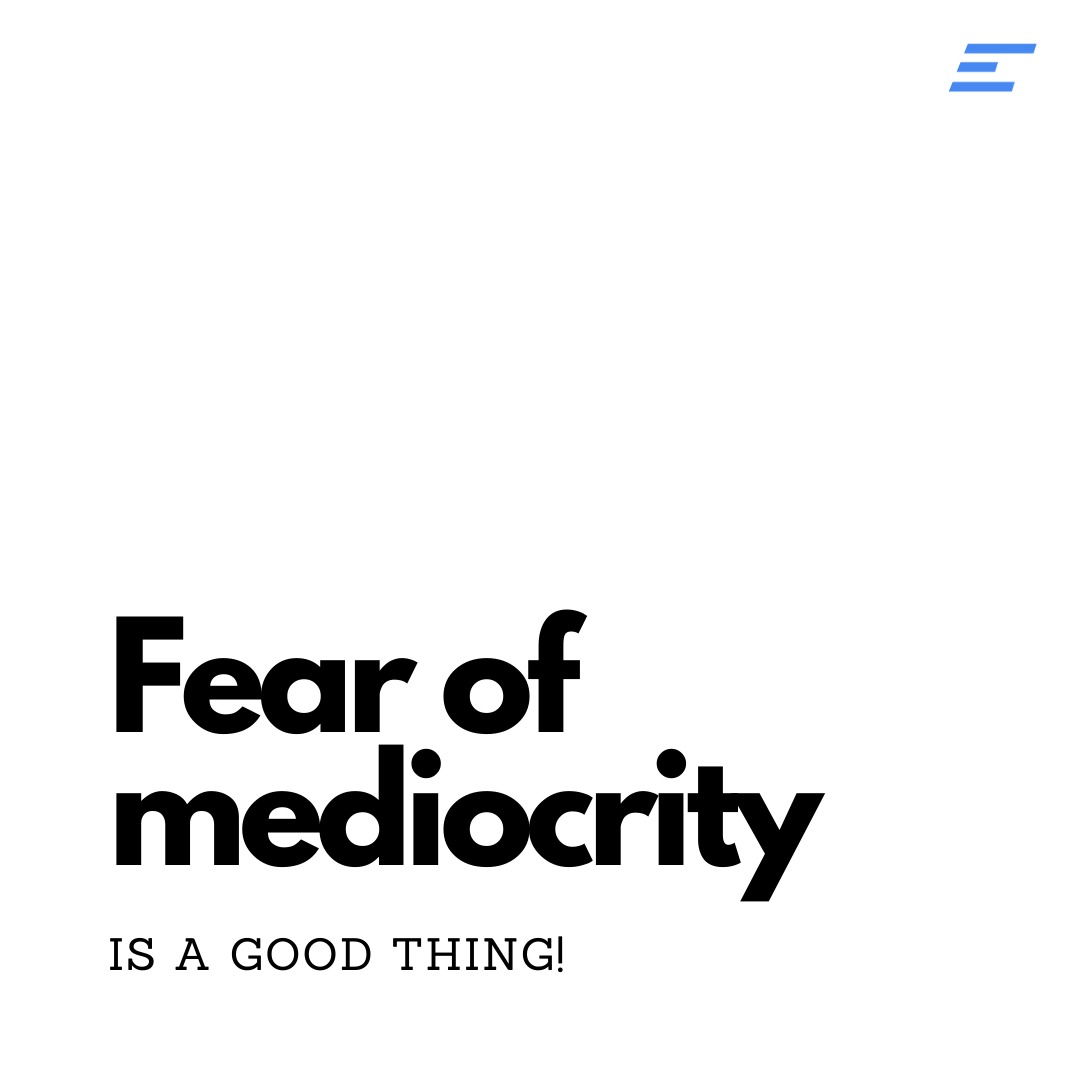Grooming the next-gen & fear of Mediocrity
Published by Aditya Jhunjhunwala,
Trying to always be extraordinary is tiring. Everywhere we look on social media, we are flooded with messages inspiring us to be extraordinary, to break comfort zones, to push beyond our limits, and to be the 'best version of ourselves'. Certainly, it is very inspiring and I have found energy in the stories and words of many. It's great to be surrounded by inspiration. But it is also tiring.
A synonym of mediocre is 'average'. Average is not such a bad thing. Nature is filled with averages. Millions of 'average' leaves come together along with all types 'average' insects, flowers, birds and others creatures to create an enchanting forest. The Zen and Buddhist philosophies speak about the virtues of 'middle path' - not being too extreme on either side of life's spectrum - in pleasure, mannerisms, habits, and desires. So, when it comes of life and living, average can be beautiful.
But, being mediocre is not the same, especially when is comes to career and business. Let me put it out there as plainly as I can - in today's world, there is NO place for mediocre.
Here are 3 trends that are shaping today's world, that are pushing businesses and professionals who stay in the zone of 'mediocre' out of the game. I'm going to attempt to explain each of them with the help of an example.
1 - 'Village-isation' of the world
When I was 12 years old, I wanted to learn to play the harmonica. I had to find a teacher. Luckily, one of the priests in the convent school where I studied knew how to play the harmonica and agreed to teach me.
Last year, during the lockdown (at the age of 45) I decided to rekindle my interest in the harmonica. This time I found an online teacher who is an Australian living in Seattle, USA.
Today, competition is not from the teacher next door, but from the best teachers in the world. And the same is true for almost all businesses. You are competition with the best of the best in the world.
In a 'village-ised' world, being mediocre means having to cut prices, and ultimately be pushed out of the game.
2 - 'King-isation' of the consumer
Business have always put up a 'Customer is king' sign in their store fronts. But, even as recently as a few years ago, if a business cheated me, or did not deliver on what they promised, there was very little means for me to get back at them.
But today I have google reviews (and many other such services). Today the first thing you and I do before buying a product is to have a look at reviews on google, amazon, or wherever else. Entire businesses can be brought to their knees by one or two scathing reviews.
In a 'Consumer is King-ised' world, being mediocre means the probability of being overrun by competitors who's reviews and visibility is much better that ours, even if you believe your product is better.
3 - 'Data-isation' of business
This has already happened and is accelerating and evolving rapidly. Big online companies know so much about you and me that they can predict what we like and what we don't. Youtube knows I'm going to like a song before I know it. Grocery and delivery apps know my monthly consumption of all kinds of household stuff better than me and my wife put together. Armed with this data, businesses can create products and services refined to their individual customers tastes.
Hence, businesses and professionals that are still operating on their 'gut feeling' of customers needs and pains, will remain mediocre.
In a 'data-ised' world, being mediocre means losing growth opportunities to others who are able to leverage data to customise and fine tuning their offerings and communication.
So what does all this have to do with grooming the next generation?
The age old business adages of customer service, value for money, cash flow is kind, etc still apply and probably always will. But the way we groom our next generation of leadership has to change.
We have to ensure that they receive the mentorship, the exposure, the skills, the thinking tools and frameworks, and the networking with peers and collaborators they will need to navigate this fast changing business and professional landscape.
We need to train ourselves to question every thing that we know about 'what works'. We need to push ourselves out of our own 'success strategies'. We need to allow ourselves to be challenged. We need to allow ourselves to be shaken up. We need to lift ourselves above our own mediocrity.
We must allow the youth to make their own mistakes and rise above and beyond what we can teach them.
We need to allow the fear of mediocrity to open our minds and see how we can shape up to the challenge posed by the changing business landscape.
Fear of mediocrity may be one of those fears that is not such a bad, after all.

